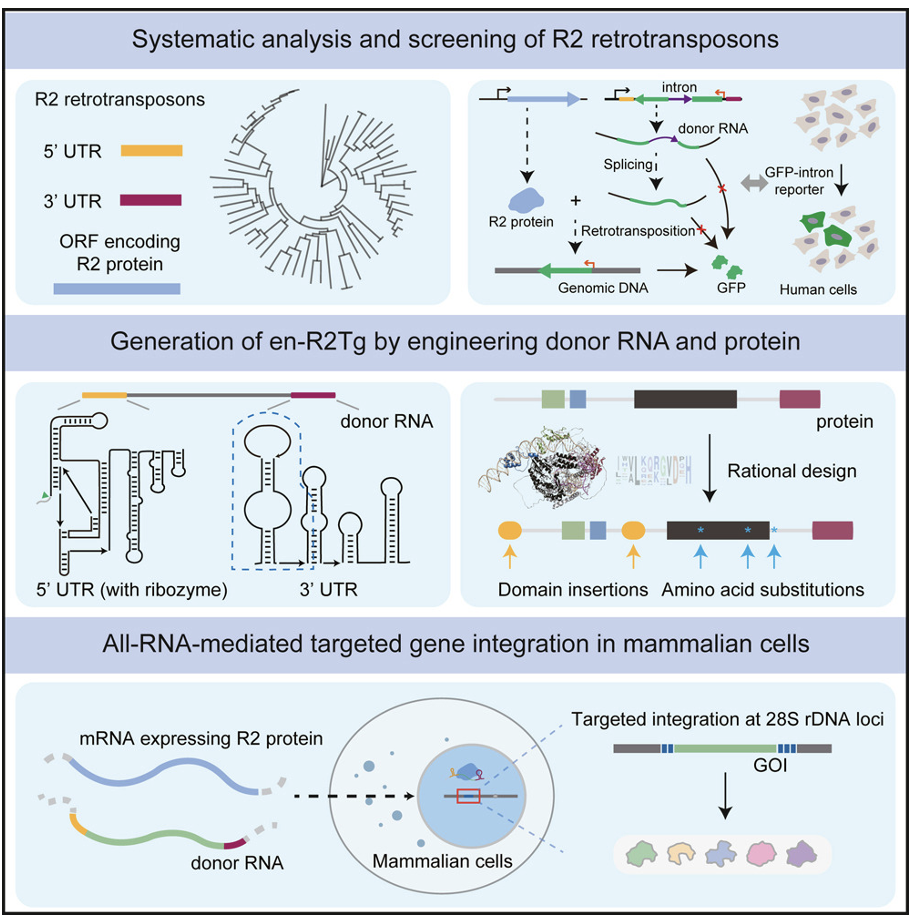https://english.cas.cn/newsroom/research_news/life/202407/t20240712_672883.shtml
https://www.cell.com/cell/fulltext/S0092-8674(24)00694-9
A research team led by LI Wei and ZHOU Qi from the CAS Institute of Zoology has developed an innovative gene-writing technology based on retrotransposons. This achievement enables all-RNA-mediated targeted gene integration in human cells. Efficient and precise integration of gene-sized DNA remains a major challenge in genome engineering. Current technologies rely primarily on DNA templates as donors for gene integration. However, DNA donors face numerous challenges in practical biomedical applications, such as high immunogenicity, difficulty in in vivo delivery, and the risk of random integration into the genome. RNA donors have lower immunogenicity compared to exogenous DNA donors, which can be effectively delivered using non-viral vectors, and are rapidly degraded in cells without the risk of random integration—thus addressing many of the challenges associated with DNA donors. However, there are currently very few technologies that can use RNA donors to achieve targeted gene-sized DNA integration in human cells.
R2 retrotransposons are mobile elements that use RNA intermediates to specifically integrate into the host 28S rDNA genomic site. There are 219 copies of this site present in the human genome, located away from protein-coding genes—making it a “safe harbor” suitable for gene integration. Despite its discovery in the 1980s, its potential use for integrating large-fragment genes into human cells has not been fully explored. In the above study, the researchers identified and engineered the avian genome-derived R2Tg system as active in human cells. It exhibited high gene integration specificity at the 28S rDNA safe harbor site. This helps to minimize the risk of mutagenesis caused by random gene integration generated by technologies such as retroviruses.
According to the researchers, this technology opens a door for the development of novel gene therapeutics, as it offers a more general approach in which a normal gene can be integrated directly into the genome to restore function, regardless of the type of mutation, e. g., to create CAR-T cells directly in the body in order to treat cancer.

